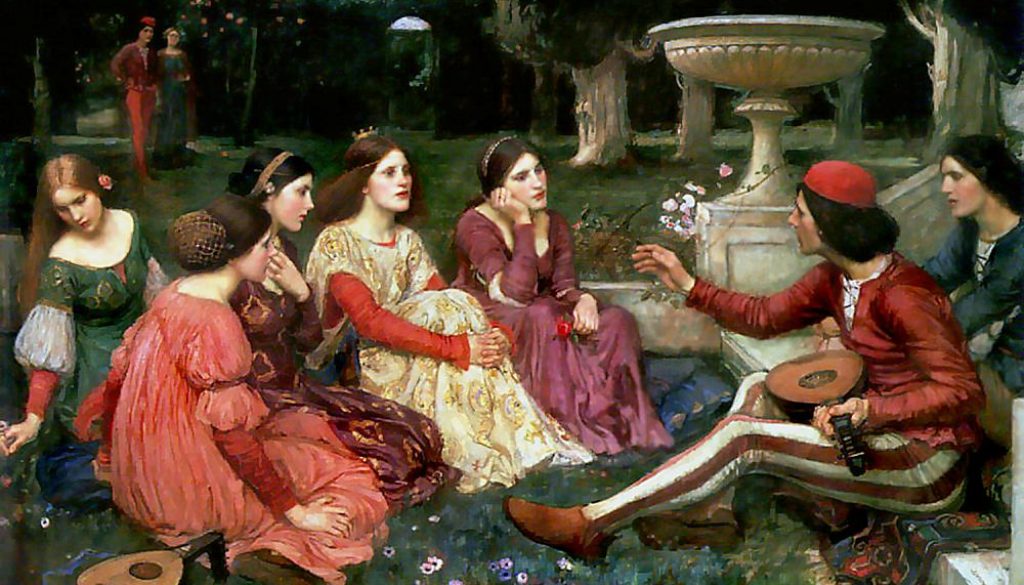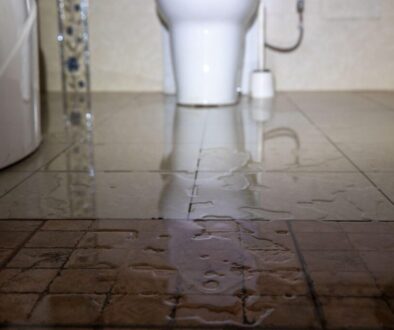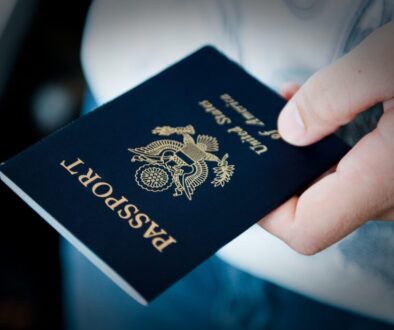How to Enjoy a Plague

Atlanta, GA
March 17, 2020
Do you have any homework? – Me
It’s all homework. – Alexander
On this St Patrick’s Day, the leprechauns are silent, the parades are stilled, and rivers in Chicago and Savannah remain blue (or brown). Only our envy is green.
We crave the happy memories of simpler times…when we thought our biggest concern was climate change. In our innocent youth, back in February, leading lights and dim bulbs assured us we at least had 12 years to survive.
Then, the plot thickened, and the thread thinned. The weather is the least of our worries. In fact, we wish it would warm!
Like a pendulum clock on a rocking ship, our impression of the coronavirus changes day to day.
Our initial instinct was to attribute the scare to the usual government tactic of creating and exploiting a crisis to enhance power and increase control. That instinct remains. It is a healthy impulse.
But to it we soon added genuine concern that this may be more serious than we first thought…both the virus itself, and especially the general reaction to it. The freak-out is now in full effect. Then again, freaking out is often appropriate.
Like Apollo’s chariot or crashing financial markets, the pestilence moved East to West. It has the US in a vise, squeezing the center from entry points on either coast.
Streets, saloons, and salons have emptied. Spiders spin webs unmolested across the interiors of subways, planes, and hotels. At home we hunker down, wash our hands, and keep our social distance. Outside, we are ever-alert to invisible bugs and their inconspicuous carriers.
Ordinarily, this would be a great time to be confined. But March Madness was among the first victims of the plague. The NBA is on hold. Baseball is delayed. I assume even Easter will be cancelled. If The Masters was scrapped, then nothing is sacred.
But we have our work, we have our books, and we have each other. So all is by no means lost. We must simply seek entertainment by unfamiliar means. Fortunately, there is precedent for surviving the tedium of a calamitous outbreak.
The epicenter of this communicable quake was in China. The initial aftershock was in Italy. Now, the whole world has the shakes. So we grab the rail, and steady ourselves.
Many are anxious, scared, frazzled…and bored. And it will get worse before it gets better. San Francisco just prohibited residents from leaving where they live, which means many must stay on the street. States are ordering bars closed, which means many more will be evicted from their homes.
Compulsory closures and mandated confinement will spread. So will the ennui. We will be able to spy only so many things. Ninety-nine bottles of beer will not be enough. Even Monopoly games last only so long. What is a distracted, hyperactive, attention-deprived, post-modern society to do?
For the road ahead, we look back. From one contagion to another. From one arising in the Middle Kingdom to one decimating the Middle Ages. From the markets of modern China…to the meadows of Medieval Italy.
Like our current contagion, the mortal epidemic of the fourteenth century came to Italy from Asia. Ours is the spawn of bats, theirs of rats.
The similarities are eerie…and endless.
Jousting tournaments were suspended. Privy councils to nominate a new king were delayed. The 1348 Olympics were in doubt. Puppet shows were cancelled. Toil and trouble abounded, but witches retreated and cauldrons cooled. Bishops cancelled Communion. Palace halls were devoid of Madrigals. And each man worked from his home…which he sometimes referred to as his castle.
No one wished for the Black Death, except on his worst enemy. But many got it. It carried off half of Italy and a third of Europe. Like an invitation to join Augusta National or a warning from La Cosa Nostra, you only got it once. In contrast, the coronavirus can recur. And some may actually hope to contract it…if only so they can touch their face again.
To escape COVID-19, we retreat indoors. To flee BD-48, Florentines escaped to country villas nestled in the lap of the Tuscan hills. There they opened their bottles, spread their innuendo, and told their tales.
By all accounts, they had no phones, and Internet connections were poor. To ignore each other, they’d resort to blatant shunning rather than subtle surfing. They had to disregard each other to their faces. But they rarely did.
In The Decameron, the pagan Boccaccio captured the scandalous scene. After Mass in the Church of Santa Maria Novella, seven young women concocted a sojourn to escape the plague. Three men, of whom a trio of the ladies were mistresses, joined them for the ten-day quarantine.
They shared salacious stories to entertain each other, and to forget themselves. In our current self-isolation, we just turn on HBO. They skewered the religious and the nobility on the spit of satire. And while the end was ostensibly near, it wasn’t imminently nigh. Safe in Elysium, they could eat, drink, and be merry…knowing that tomorrow they’d dine.
We are more quiet, and restless, in our passivity. We might amuse ourselves momentarily. But, as with Federal Reserve policy, our rate of interest falls fast, and we quickly seek new things to do.
Yet we do have a welcome opportunity to slow down…to think, reflect, and reconnect. We can take longer walks, tackle neglected tasks, peruse a few books, and spend time with our fast-growing sons.
And we still have our innocent diversions and guilty pleasures. As our banality continues, I humor myself by writing this nonsense. And if it persists long enough, people may resort to reading it.
If that can’t incite a cure, I don’t know what will.
JD



